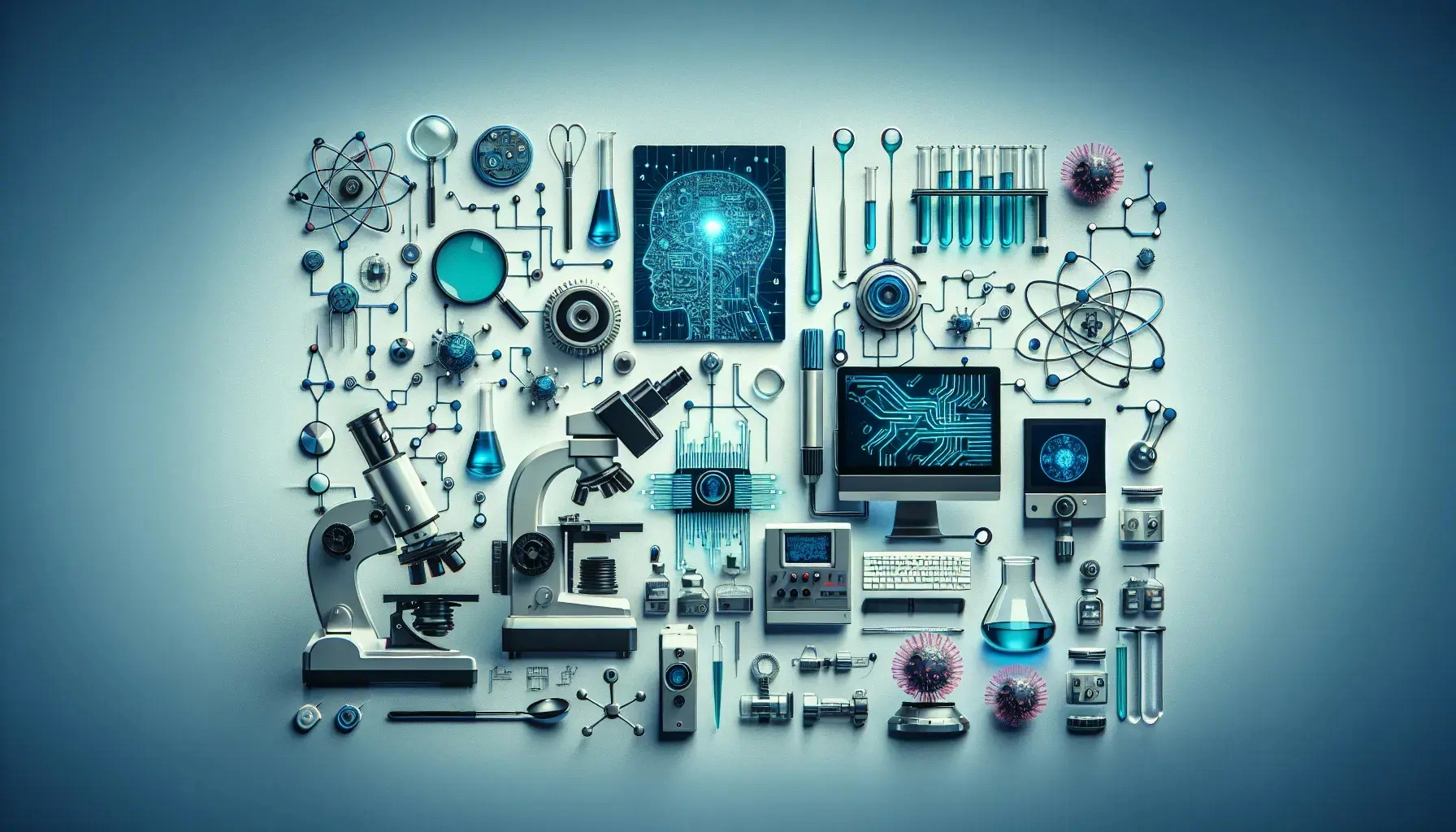The Role of AI and Machine Learning in Biomedical Applications
BiomedicalEngineering.io

The world of biomedical applications is experiencing a revolution, thanks to the advent of Artificial Intelligence (AI) and Machine Learning (ML). These technologies are reshaping the way we approach healthcare, from disease diagnosis to drug discovery, and everything in between. This blog post delves into the transformative role of AI and ML in biomedical applications, exploring their potential and highlighting real-world examples of their use.
AI and ML: A New Era in Biomedical Research
Biomedical research has always been a complex field, involving the study of biological processes, diseases, and the development of new treatments. However, the introduction of AI and ML is changing the game. These technologies are enabling researchers to analyze vast amounts of data quickly and accurately, leading to more efficient and effective research.
AI and ML algorithms can sift through large datasets, identifying patterns and trends that would be impossible for humans to detect. This capability is particularly useful in genomics research, where scientists are dealing with massive amounts of data. By using AI and ML, researchers can identify genetic markers linked to specific diseases, leading to more targeted and effective treatments.
Moreover, AI and ML are also playing a crucial role in drug discovery. Traditional methods of drug discovery are time-consuming and costly. AI and ML can streamline this process by predicting how different compounds will interact with the body, helping researchers identify potential new drugs more quickly.
Revolutionizing Disease Diagnosis with AI and ML
Disease diagnosis is another area where AI and ML are making a significant impact. These technologies are improving the accuracy and speed of diagnosis, leading to better patient outcomes.
AI and ML algorithms can analyze medical images, such as X-rays and MRIs, to detect signs of diseases. These algorithms are trained on thousands of images, learning to identify subtle differences that might indicate the presence of a disease. This capability is particularly useful in the diagnosis of conditions like cancer, where early detection can significantly improve survival rates.
In addition to imaging, AI and ML are also being used to analyze patient data to predict the likelihood of disease. By analyzing factors such as age, gender, lifestyle, and genetic markers, these algorithms can predict a person's risk of developing certain conditions. This predictive capability can help doctors intervene earlier, potentially preventing the onset of disease.
Personalized Medicine: The Future of Healthcare
Personalized medicine, also known as precision medicine, is a healthcare approach that tailors treatment to individual patients based on their genetic makeup, lifestyle, and environment. AI and ML are key drivers of this approach, enabling the analysis of vast amounts of data to provide personalized treatment plans.
AI and ML algorithms can analyze a patient's genetic data to identify mutations that might make them more susceptible to certain diseases. This information can then be used to develop a personalized treatment plan that targets these specific mutations.
Furthermore, AI and ML can also analyze data from wearable devices, such as heart rate monitors and fitness trackers. This data can provide insights into a person's lifestyle and health, helping doctors tailor treatments to the individual's specific needs.
Overcoming Challenges in Biomedical Applications with AI and ML
Despite the many benefits of AI and ML in biomedical applications, there are also challenges that need to be addressed. These include issues related to data privacy, algorithmic bias, and the need for robust validation of AI and ML models.
Data privacy is a significant concern in healthcare, as sensitive patient data is often used to train AI and ML algorithms. Ensuring this data is used responsibly and securely is crucial. Moreover, algorithmic bias can lead to inaccurate predictions and diagnoses, particularly for underrepresented groups. Addressing this bias requires diverse and representative datasets for training AI and ML models.
Validation of AI and ML models is another critical challenge. These models need to be thoroughly tested and validated to ensure their accuracy and reliability. This process can be complex and time-consuming, but it is essential to ensure the safe and effective use of AI and ML in healthcare.
The Future of AI and ML in Biomedical Applications
The future of AI and ML in biomedical applications looks promising. These technologies are expected to continue transforming healthcare, leading to more accurate diagnoses, personalized treatments, and improved patient outcomes.
One area of future growth is the use of AI and ML in telemedicine. These technologies can analyze patient data remotely, enabling doctors to diagnose and treat patients from a distance. This capability is particularly useful in rural or underserved areas, where access to healthcare can be limited.
Another exciting development is the use of AI and ML in wearable technology. These devices can monitor a person's health in real-time, providing valuable data that can be used to predict and prevent diseases.
Embracing the AI and ML Revolution in Biomedical Applications
The impact of AI and ML on biomedical applications is undeniable. These technologies are reshaping healthcare, leading to more efficient research, improved disease diagnosis, personalized medicine, and more.
However, to fully realize the potential of AI and ML, it's crucial to address the challenges associated with their use. This includes ensuring data privacy, addressing algorithmic bias, and validating AI and ML models.
By embracing the AI and ML revolution and addressing these challenges, we can unlock the full potential of these technologies in biomedical applications, leading to a future of healthcare that is more efficient, effective, and personalized.
The Transformative Power of AI and ML in Biomedical Applications
The role of AI and ML in biomedical applications is transformative, offering unprecedented opportunities for advancements in healthcare. From accelerating research to improving disease diagnosis and enabling personalized medicine, these technologies are reshaping the biomedical landscape. Despite the challenges, the future of AI and ML in biomedical applications looks promising, heralding a new era of healthcare that is more efficient, effective, and personalized.